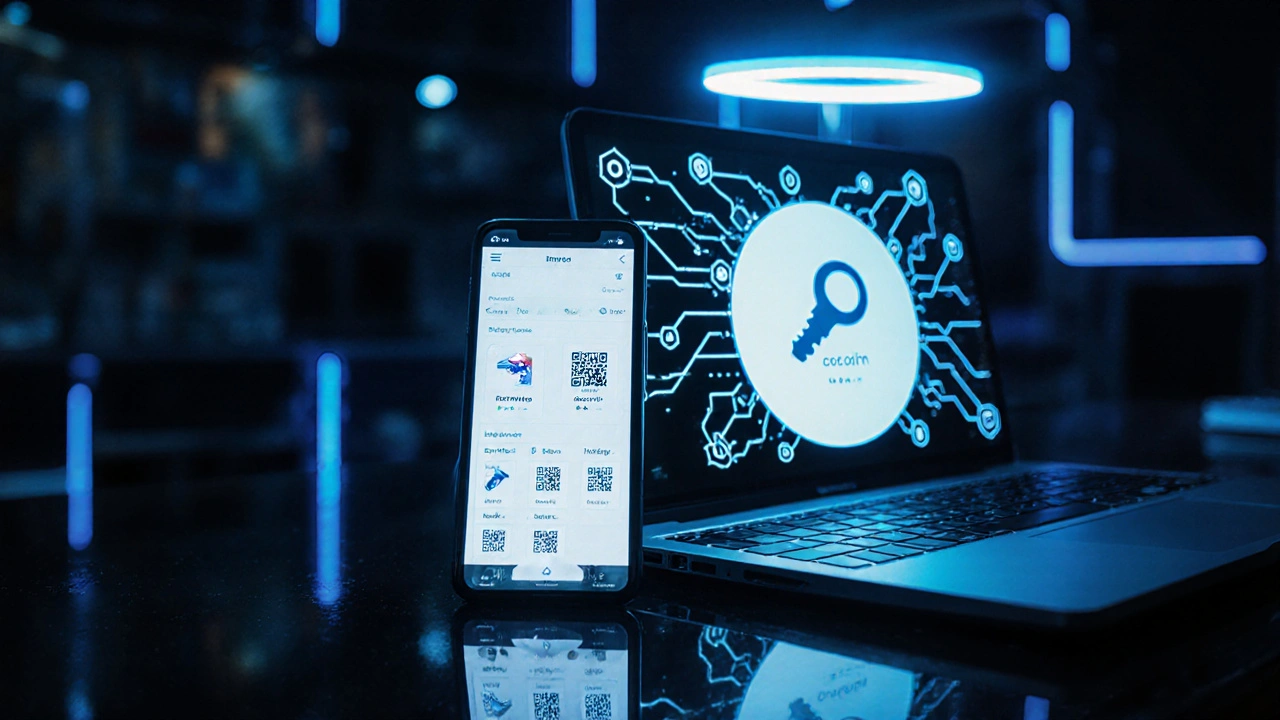Crypto Wallet: Types, Security, and How They Power Digital Money
When dealing with Crypto Wallet, a software or hardware tool that lets users store, send, and receive cryptocurrencies securely. Also known as digital wallet, it acts as the interface between a person and the blockchain network.
Understanding a crypto wallet means understanding the Blockchain, the distributed ledger that records all crypto transactions it connects to. A wallet crypto wallet encompasses a Private Key, a secret code that unlocks the ability to move funds from a crypto wallet. That private key controls the user's Digital Assets, any token or coin stored on a blockchain, such as Bitcoin or Ethereum. The relationship can be summed up in a few triples: the crypto wallet contains a private key, the private key manages digital assets, and the blockchain validates every transaction that the wallet initiates. Because of this chain, losing a private key means losing access to your assets, while a strong key protects them from theft.
Choosing the Right Wallet and Staying Secure
There are three main families of wallets: hardware devices that keep keys offline, software apps that store keys on a phone or computer, and web‑based services that manage keys in the cloud. Each type balances convenience against security. Hardware wallets, for example, offer the highest protection because the private key never touches an internet‑connected device – perfect for long‑term holders. Software wallets are great for everyday spending but require solid device security: regular updates, strong passwords, and two‑factor authentication. Web wallets are the most user‑friendly, yet they put the onus on the service provider to safeguard the keys, which can be a risk if the platform is compromised. Beyond the type, real security comes from habits. Always back up your seed phrase in a safe, offline location. Enable biometric locks or PIN codes on mobile wallets. Beware of phishing sites that mimic legitimate services; a quick URL check can prevent a major loss. If you dive into decentralized finance (DeFi), remember that every interaction with a smart contract requires your wallet to sign a transaction, so double‑check the contract address before approving anything. In short, a crypto wallet is the gateway to the blockchain, and the way you manage it determines whether you enjoy smooth transactions or face costly mishaps. Below you’ll find a curated list of articles that break down market crashes, explain Ethereum’s blockchain, and explore other topics that intersect with crypto wallets. Whether you’re just setting up your first wallet or looking to tighten security on an existing one, the posts ahead give actionable tips and deeper insight into the ecosystem that surrounds your crypto wallet.
1
Hot Wallet Explained: What It Is and How It Works in Crypto
Learn what a hot wallet is, how it works, its security pros and cons, and when to use it versus a cold wallet.
Latest Posts
Categories
Tags
- streaming services
- video editing
- video production
- parental controls
- Max streaming
- video editing software
- marketing mix
- subscription management
- streaming apps
- video editing tips
- tips
- ROI
- video marketing
- video editing tools
- marketing strategy
- Premiere Pro
- family viewing
- classic cinema
- Kurosawa
- streaming setup




